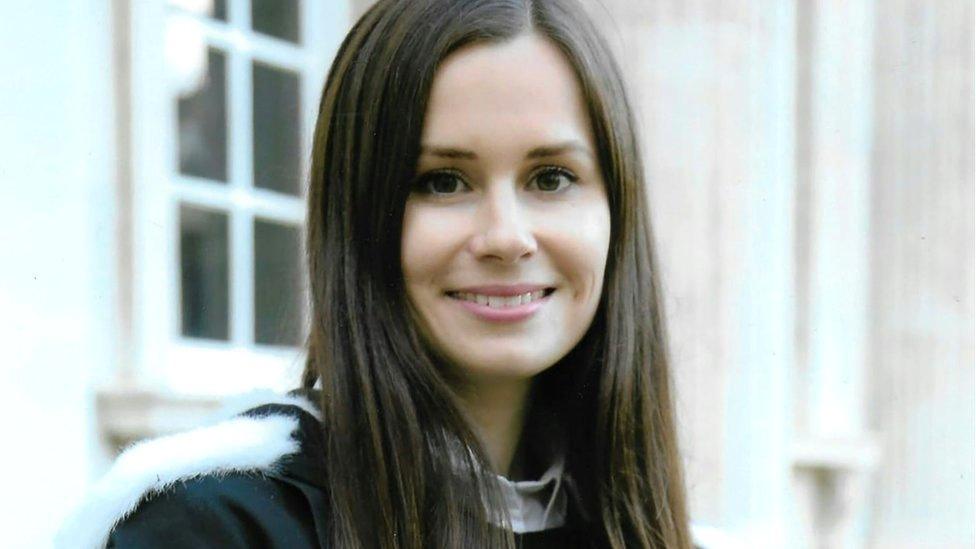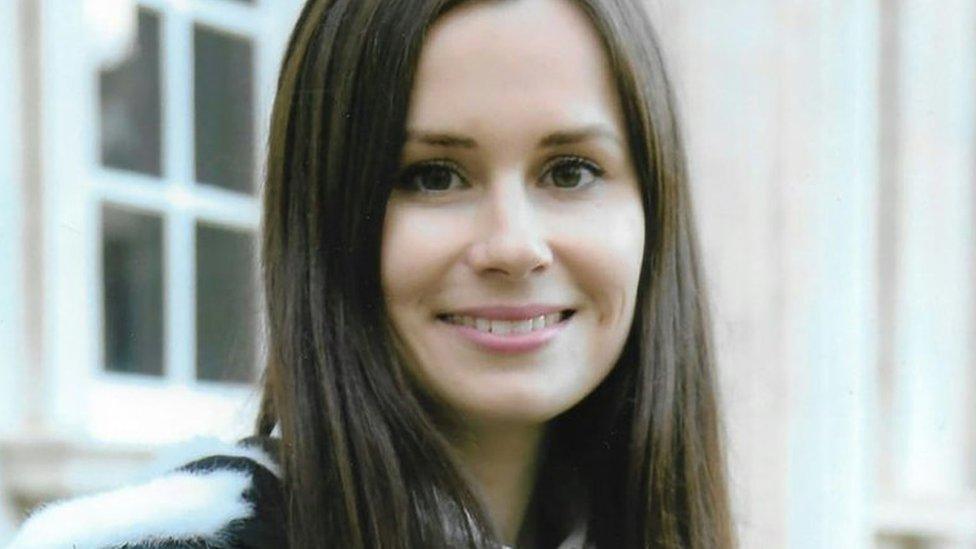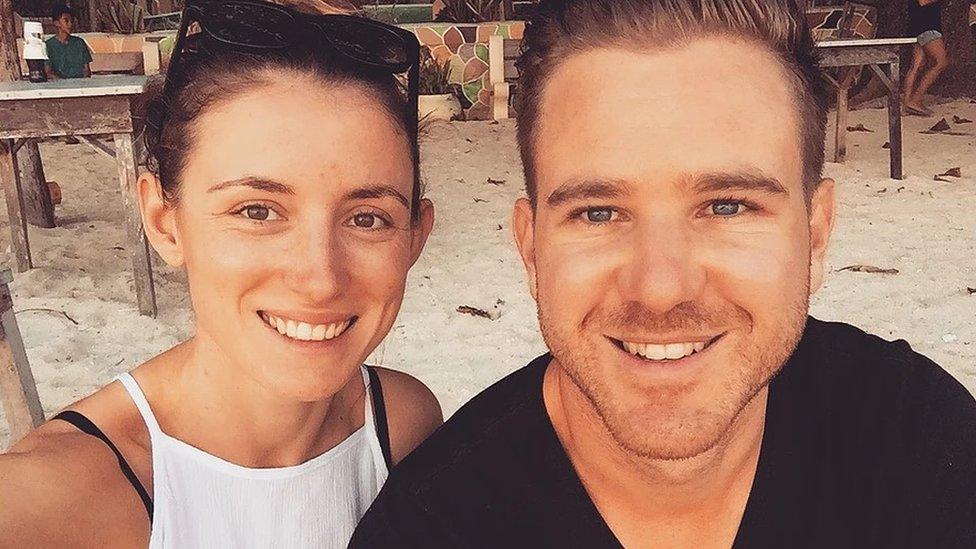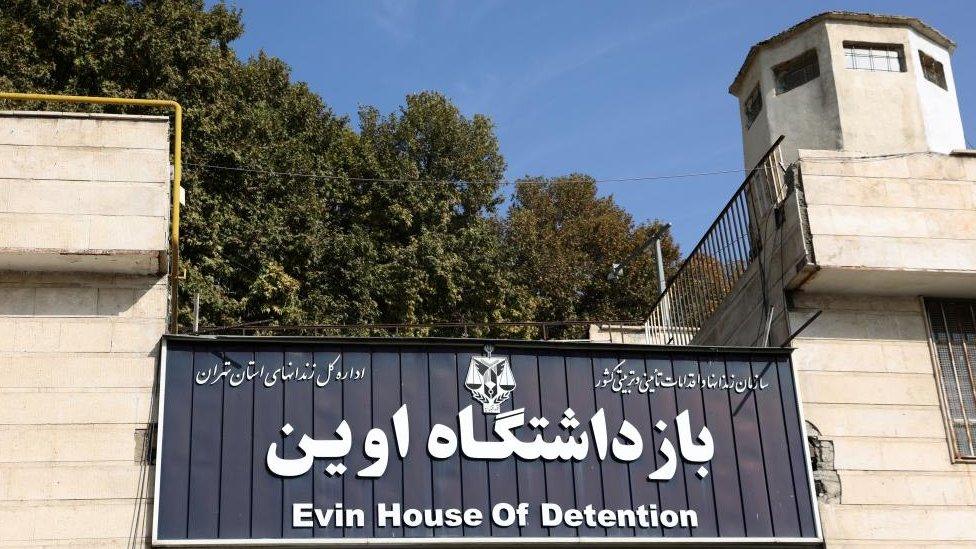Kylie Moore-Gilbert: Academic thanks supporters after Iran 'nightmare'
- Published
Iran TV shows release of Kylie Moore-Gilbert in exchange for three Iranians imprisoned abroad (November 2020 report)
A British-Australian academic freed from an Iran jail last week has thanked friends and supporters for helping her to endure the "unrelenting nightmare".
In her first statement since arriving back in Australia, Kylie Moore-Gilbert said she had "no words to express the depth of my gratitude".
Dr Moore-Gilbert was arrested in Iran in September 2018 and had been serving a 10-year sentence on spying charges.
She was released in a prisoner swap for three Iranians, Tehran said.
The Melbourne University lecturer has consistently denied the accusations against her.
She had been travelling on an Australian passport in 2018 when she was detained at Tehran airport as she tried to leave following a conference.
Concerns for her wellbeing escalated in August when news emerged that she had been transferred to Qarchak, a notorious prison in the desert.
"It gave me so much hope and strength to endure what had seemed like a never-ending, unrelenting nightmare," she said in a statement posted online, adding that she was "touched" and "totally blown away" by the support.
On news of her release last week, Dr Moore-Gilbert's family said they were "relieved and ecstatic" that she was free. She arrived back in Australia on a flight to the capital, Canberra, on Friday.

Kylie Moore-Gilbert was reported to have been on several hunger strikes while in Evin prison in Tehran
Last Thursday, Dr Moore-Gilbert said Australian officials had worked "tirelessly" to secure her freedom. She thanked them and other supporters who had "meant the world to me" while in detention.
The Cambridge-educated scholar - who was tried in secret - had endured "over 800 days of incredible hardship", her family said.
"We cannot convey the overwhelming happiness that each of us feel at this incredible news," they said in a statement released by the Australian government.
According to Iranian state media, she was exchanged for three Iranian citizens who had been detained in Thailand over a 2012 bomb plot in Bangkok, apparently aimed at Israel.
Thai authorities, however, have not confirmed that the three Iranians were exchanged with anyone.
'I was never a spy'
In letters smuggled out of Tehran's Evin prison earlier this year, Dr Moore-Gilbert said she had "never been a spy" and feared for her mental health. She said she had rejected an offer from Iran to become a spy.
"I am not a spy. I have never been a spy, and I have no interest to work for a spying organisation in any country," she wrote.
She was later visited by Australia's ambassador to Iran, Lyndall Sachs, who reported that she was "well".
Dr Moore-Gilbert was reported to have spent long periods in solitary confinement and undertaken hunger strikes while in detention.
Australian Foreign Minister Marise Payne said the release "was achieved through diplomatic engagement with the Iranian government".
Iran has detained a number of foreign nationals and Iranian dual citizens in recent years, many of them on spying charges. Human rights groups have accused Tehran of using the cases as leverage to try to gain concessions from other countries.
British-Iranian charity worker Nazanin Zaghari-Ratcliffe was jailed on spying charges in 2016. She has always maintained her innocence.
Why one mother's personal plight is part of a complicated history between Iran and the UK (video published August 2019 and last updated in October 2019)
- Published14 September 2019

- Published12 September 2019

- Published28 July 2020

- Published19 September 2023
